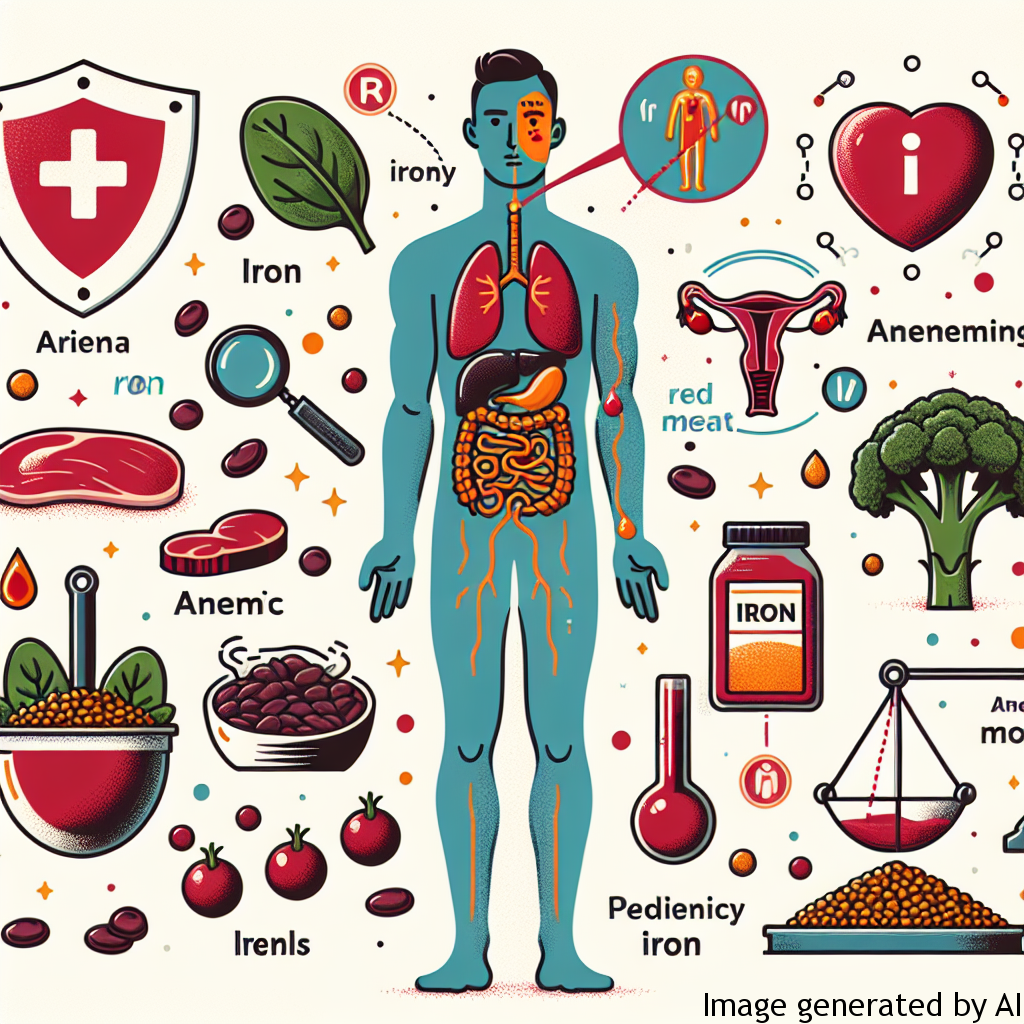Introduction
Iron plays a crucial role in ensuring the overall health of the human body. However, its importance becomes even more pronounced when we consider its role in preventing anemia — a condition characterized by a deficiency in the number or quality of red blood cells. This article aims to shed light on the critical role that iron plays and suggests some ways to incorporate it adequately into our diets.
The Vital Role of Iron
Iron and Hemoglobin
Iron is key to the production of hemoglobin, a protein in red blood cells that enables them to carry oxygen from the lungs to the rest of the body. Without sufficient iron in the body, your blood can’t produce enough healthy oxygen-carrying red blood cells. Over time, this scenario leads to iron deficiency anemia.
The Impact of Iron Deficiency
Iron deficiency can lead to several symptoms, including fatigue, weakness, pale skin, irregular heartbeat, and shortness of breath. Over time, if untreated, it can create complications, including heart problems, growth and developmental delays in children, and complications during pregnancy.
Examples ans Statistics
Anemia affects more than 1.62 billion people globally. In the United States, nearly 10% of women are iron-deficient. This prevalence demonstrates the significance of maintaining proper iron levels in our body. Pregnant women, people with poor diet, and those who donate blood frequently are at a higher risk of iron deficiency anemia.
Tips to Improve Iron Intake and Prevent Anemia
Adding iron-rich foods to your diet can help prevent iron deficiency anemia. These foods include fortified cereals and breads, dark green leafy vegetables, lean meat, and beans. For individuals who struggle to consume sufficient iron through their diet alone, iron supplements can be beneficial, but they should be taken with medical advice. Pairing these foods with a source of vitamin C can improve iron absorption.
Conclusion
To prevent iron deficiency anemia, it’s essential to make good nutrition a priority, focusing on including a variety of iron-rich foods in your diet. Regular check-ups can help to catch any potential issues early, and steps can be taken to address them effectively. Remember, iron isn’t just important for your health — it’s vital for your well-being.

